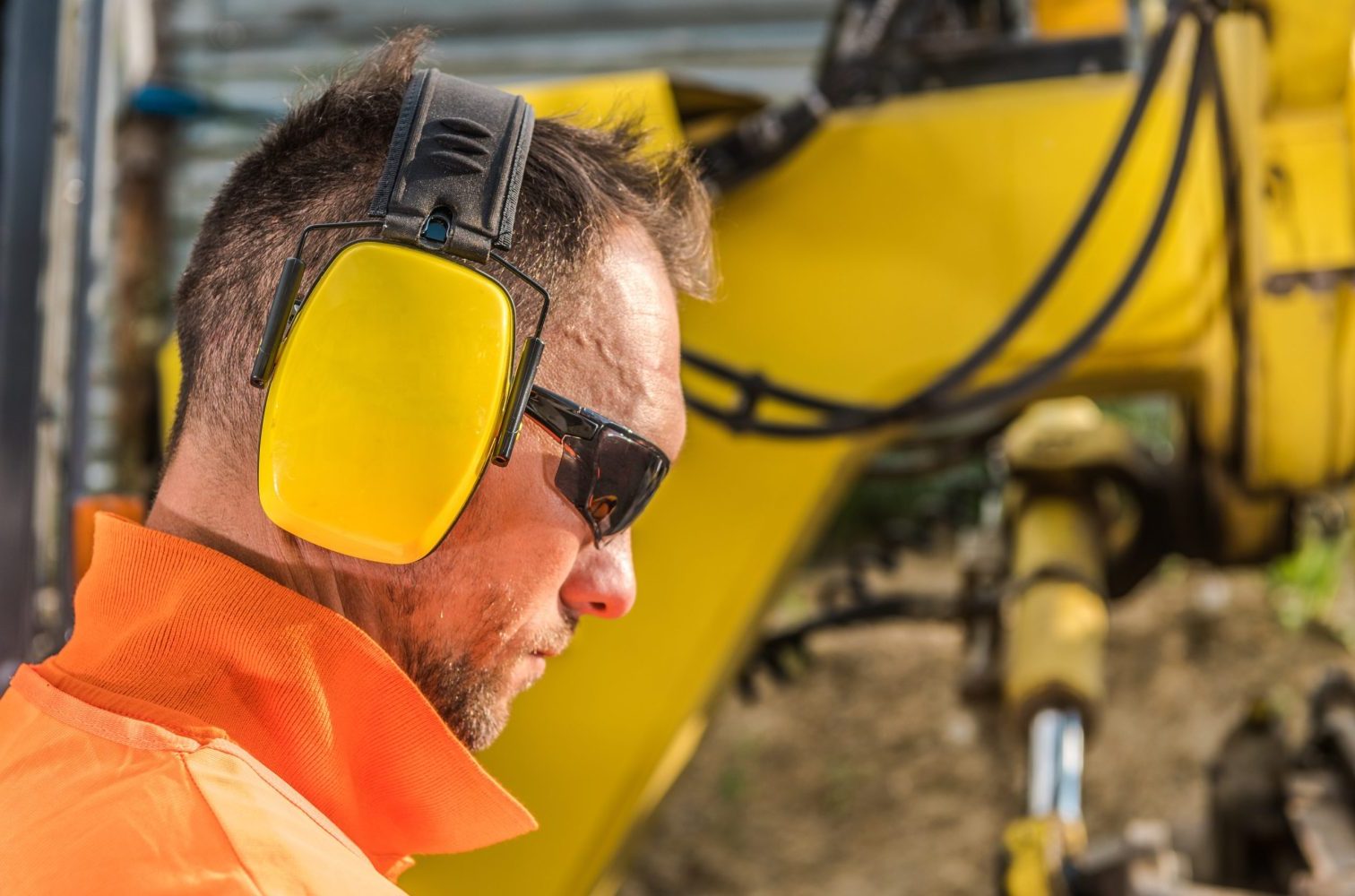The Silent Threat: Hearing Loss in the Workplace
Hearing Loss in the workplace is a prevalent issue in the UK, affecting millions of people. While age-related hearing loss is a natural concern, a significant portion of the population experiences hearing damage due to occupational noise exposure. At Latus Group, we understand the importance of protecting employee well-being, and hearing health is a vital part of that equation.
According to the Royal National Institute for Deafness (RNID), over 10 million people in the UK have some degree of hearing loss. Even more concerning, nearly one in five workers report noise exposure at work that they believe could damage their hearing. This translates to a significant health risk for a large portion of the workforce.
Certain industries are particularly susceptible to noise-induced hearing loss (NIHL). The construction sector is a prime example, with constant exposure to loud machinery and tools. Manufacturing facilities, with their clanging presses and assembly lines, also pose a significant risk. Even seemingly quieter industries like agriculture can be hazardous, due to the constant rumble of tractors and other equipment.
But what about the jobs that aren’t as obvious?
A recent survey by Boots pharmacy carried out data analysis to reveal the noisiest jobs that put workers’ ear health at risk. The research revealed that emergency service workers are most at risk of damaging their hearing at work due to the loud sirens used to alert the public of an emergency. But also in the list were Hairdressers due to the continuous noise of hair dryers, as well as cleaners who use Vacuum Cleaners regularly, and even waste disposal workers.
The effects of NIHL go beyond simply not being able to hear well. Studies have linked prolonged noise exposure to increased stress, fatigue, and even difficulty concentrating. This can have a detrimental impact on employee productivity and overall workplace safety. When it comes to noise levels, consistently being exposed to anything measuring more than 70 dB (decibels) can start to cause damage to hearing after two hours of constant noise, and any sounds measuring more than 120 dB can cause immediate hearing issues.
To put that into perspective, the average conversation is around 60 dB and considered the average noise level that your hearing should be exposed to on a constant basis.
Considering that emergency service vehicle sirens measured at 114 dB when tested, any workers exposed to this for long periods of time could be severely at risk of damaged hearing.
Construction related jobs such as construction workers, tree surgeons, iron workers and welders unsurprisingly appear as some of the jobs most likely to have a negative impact on hearing, as workers operate loud machinery. Workers in these professions are likely to be provided with hearing protection equipment to minimise the risk involved, although if you are self-employed it’s important to ensure you have the correct awareness and training around ear health.
Top 10 Noisiest Jobs
- Paramedics – vehicle sirens
- Police officers – vehicle sirens
- Bar/Nightclub Staff
- Tree Surgeon
- Construction Workers
- DJ’s
- Labourers (Demolition)
- Farmers
- Electricians
- Ironworkers/Welders
The good news is that NIHL is largely preventable. The Control of Noise at Work Regulations 2005 place a legal duty on employers to assess noise risks and implement control measures. This may involve providing appropriate hearing protection equipment, such as ear defenders or ear plugs, and ensuring it is properly used. Additionally, employers can explore ways to reduce noise levels at the source, through engineering controls or modifying work practices.
Worldwide hearing loss
A new report released in September 2024 regarding hearing care has revealed eye-watering statistics on hearing loss. Approximately 1.6 billion people worldwide, or about 20% of the global population, currently experience some form of hearing loss.
The rise of industrial activities has led to increased noise exposure and is a major cause of occupational hearing loss, especially in regions with less stringent safety regulations.
Although the prevalence of hearing impairment increases significantly with age, especially among individuals over 60 years old, astonishingly it has highlighted how young people are also at risk, with more than 1 billion young adults facing the threat of permanent but preventable hearing loss due to unsafe listening habits.
As a result, demand for hearing care and hearing protection is on the rise, with increased numbers of noise-induced hearing loss, particularly among industrial workers.
Hearing loss is a significant public health issue affecting millions of people worldwide. In the UK, the prevalence of hearing impairment is on the rise, particularly among certain demographics, including construction workers and those exposed to excessive noise in their workplaces.
National Audiology Awareness Month 2024 is held in October to encourage proactive steps toward protecting hearing and promoting understanding and support for individuals with hearing impairments.
Audiometry is a crucial tool for assessing hearing function and identifying early signs of hearing loss. Regular audiometric testing can help to:
- Detect early hearing loss
- Monitor the progression of hearing loss
- Assess hearing protection
- Comply with H&S regulations
At Latus Group, we offer a range of services to help businesses protect their employees’ hearing. We can conduct noise exposure assessments, advise on hearing protection options, and provide health surveillance audiometry testing to monitor employee hearing health over time. Regular audiometric testing is essential for protecting hearing health and ensuring the well-being of workers in high-risk industries.
Latus offers a variety of services to cover all of your Occupational Health and Health Surveillance needs.
- Health Surveillance
- Management Referrals
- Safety Critical and Fit-For-Work Medicals
- Mental Health, Physiotherapy/MSK Clinic
- GP Support
- Workplace Testing and Screening
- Vaccinations
- Biological Monitoring
- First Aid and Mental Health First Aid Training
- Health and Wellness Screening
If you’d like to speak to us about health surveillance, visit our page and contact us with any questions.


